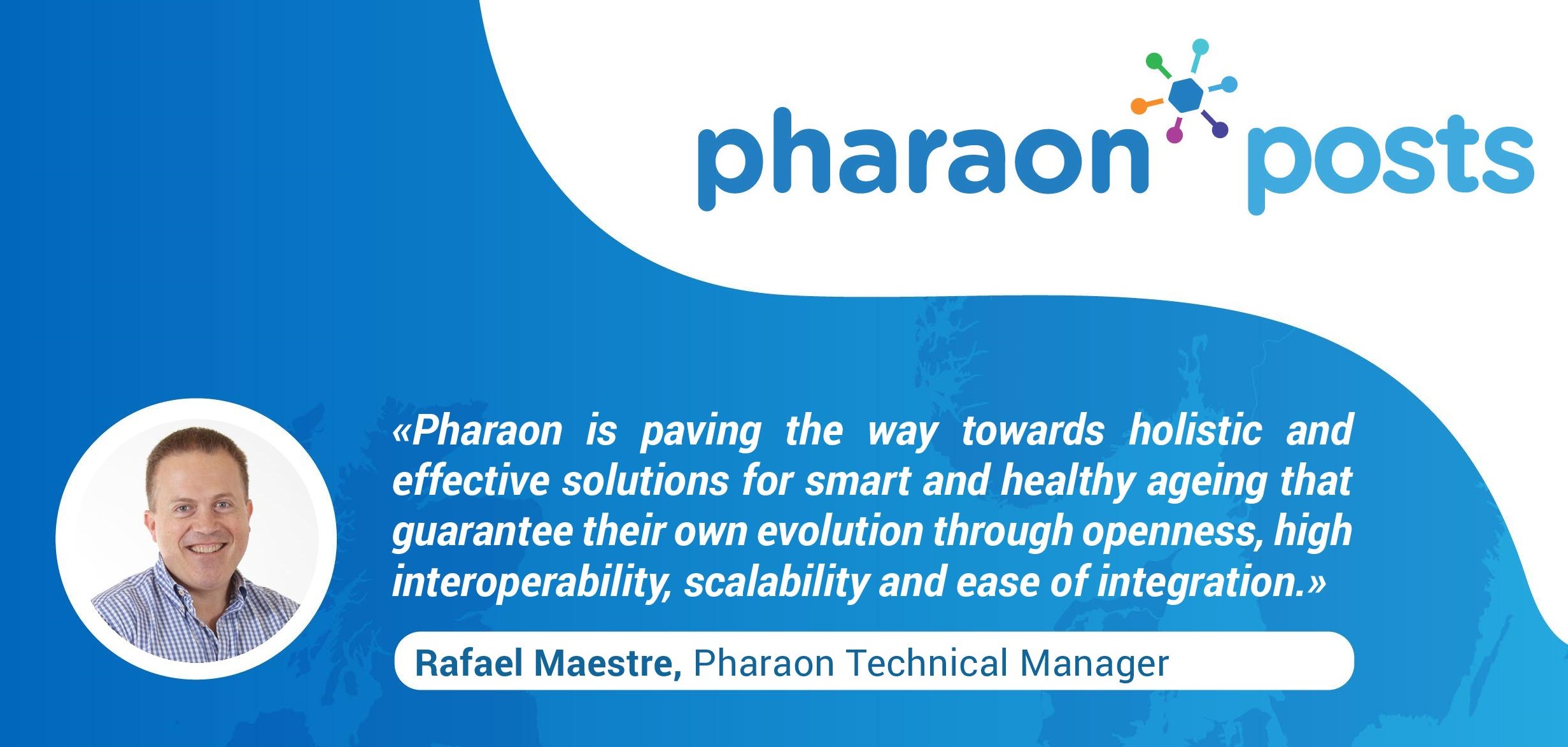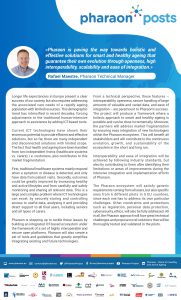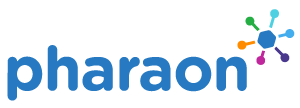
10 Nov Pharaon Posts! Rafael Maestre, Technical Manager
 Longer life expectancies in Europe present a clear success of our society, but also requires addressing the associated care needs of a rapidly ageing population with limited resources. This demographic trend has intensified in recent decades, forcing adjustments to the traditional human-intensive approach to assistance by adding ICT-based tools.
Longer life expectancies in Europe present a clear success of our society, but also requires addressing the associated care needs of a rapidly ageing population with limited resources. This demographic trend has intensified in recent decades, forcing adjustments to the traditional human-intensive approach to assistance by adding ICT-based tools.
Current ICT technologies have shown their enormous potential to provide efficient and effective solutions, but so far, there are many independent and disconnected solutions with limited scope. The fact that health and ageing have been handled from two independent fronts (healthcare systems vs. carers), i.e. customers, also contributes to this market fragmentation.
First, traditional healthcare systems mainly respond when a symptom or disease is detected, and only have data from patient visits. Secondly, outcomes could be greatly improved by increasing healthy and active lifestyles and from carefully and safely monitoring and sharing all relevant data. This is a large and complex problem where ICT technologies can excel, by securely storing and controlling access to useful data, analysing it and providing direct support to all final users, including seniors and all types of carers.
Pharaon is stepping up to tackle these issues by building an integrated ICT-based ecosystem under the framework of a set of highly interoperable and secure open platforms. Pharaon will also create a set of tools and guidelines that greatly simplifies integrating existing and future technologies.
From a technical perspective, these features – interoperability, openness, secure handling of large amounts of valuable and varied data, and ease of integration – are paramount to Pharaon’s success. The project will produce a framework where a holistic approach to smart and healthy ageing is possible and can be done incrementally. Moreover, the partners will address market fragmentation by ensuring easy integration of new technologies within the Pharaon ecosystem. This will benefit all stakeholders and will contribute to the continuous evolution, growth, and sustainability of the ecosystem in the short and long run.
Interoperability and ease of integration will be achieved by following industry standards, but also by contributing to them after identifying their limitations or areas of improvements during the intensive integration and implementation efforts of Pharaon.
The Pharaon ecosystem will satisfy generic requirements coming from all users, but also specific ones from 6 different pilots in 5 EU countries, since each one has to address its own particular challenges. Other constraints and protections such as legislation, personal data protection, cybersecurity, ethics, will also be fully addressed. All in all, the Pharaon approach will face great technical challenges and propose novel solutions that will be thoroughly tested and validated in the pilots.
Download “Pharaon Posts! “Rafael Maestre” as .pdf (click here)

